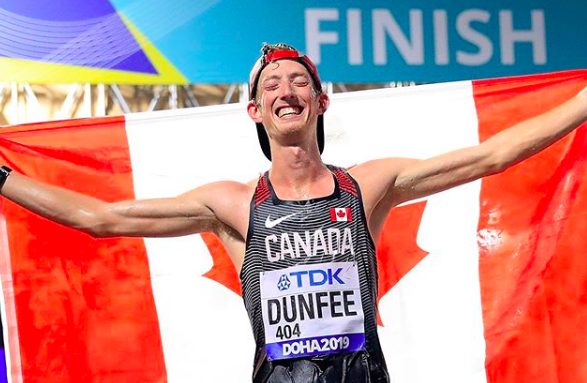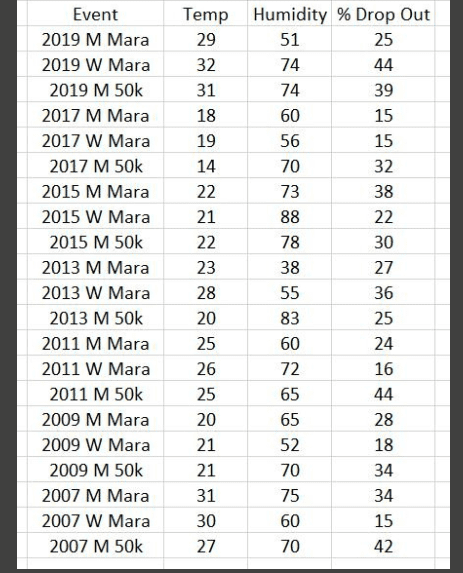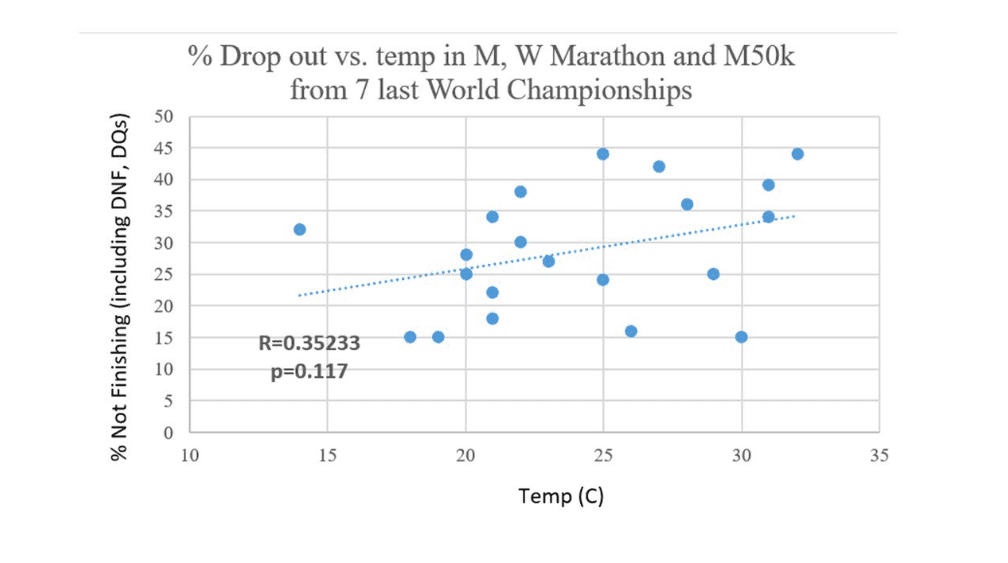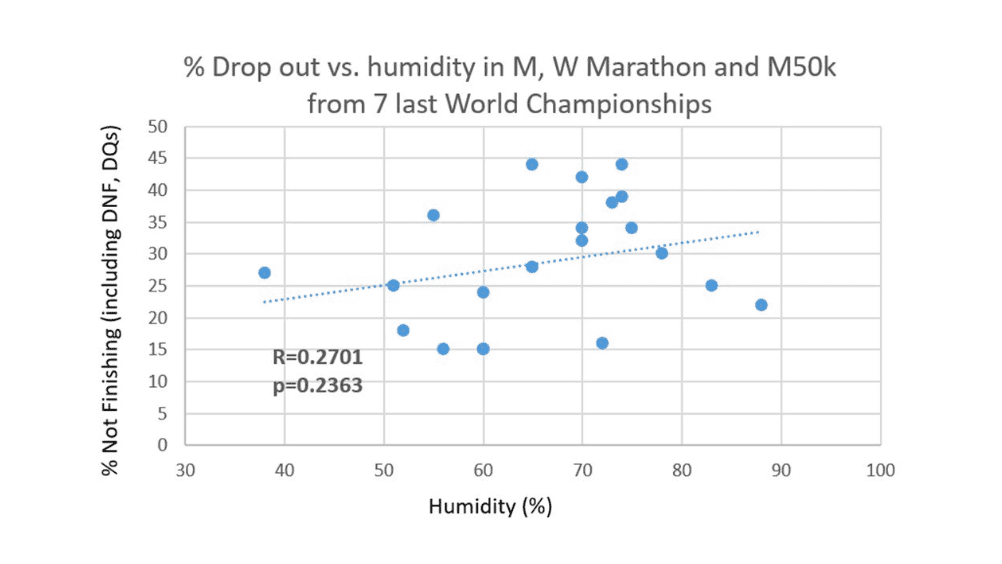How hot was it in Doha, really? One expert’s take
Team Canada physiologist Trent Stellingwerff tweeted a number of observations about heat and humidity conditions in Doha. His conclusion? It wasn't really that bad, if you're prepared

It’s difficult for those of us who live in a temperate climate to imagine just how hot it was in Doha during the World Championships, which wrapped yesterday. We read athletes exclaiming on social media about the shock of arriving to temperatures and humidity levels rarely seen in most parts of Canada. But upon the games’ conclusion yesterday, team physiologist Trent Stellingwerff tweeted a number of observations about the weather that challenged assumptions about the extreme conditions.
1/ I thought I would wait until Doha 2019 World Champs were over, before giving my thoughts on the hot weather – as having been here, working with athletes on the front line, gives me a unique perspective.
— Trent Stellingwerff (@TStellingwerff) October 6, 2019
How hot was it?
“Were the conditions hot in Doha for the road races?” tweets Stellingwerff. “YES–YOU BET!”
Temperatures ranged from 28 C to 32 C on the roads, with humidity fluctuating between 50 and 90 per cent. Khalifa Stadium and the warmup track were air conditioned, but Stellingwerff reminded us that the stadium in Tokyo for the 2020 Olympics will not have AC. But he also pointed out that conditions were not that different from other events around the world, offering Ironman Hawaii and the Badwater Ultramarathon as examples. “In fact,” he says, “the challenging conditions provided a big opportunity to execute sport science to achieve relatively better results.”
RELATED: Takeaways from the 2019 World Championships
Lots of media looking to @lyndsay_tessier after her 9th place finish in the women’s marathon ?? pic.twitter.com/uEvBiuj9vQ
— Athletics Canada (@AthleticsCanada) September 28, 2019
A look back
Stellingwerff considered four Olympic marathons in the past where heat was a factor, and in every case conditions were comparable to conditions in Doha, where it was 29 C with 50 per cent humidity during the men’s marathon on Saturday evening:
1984 Los Angeles: 30 C, 55 per cent humidity
1996 Atlanta: 28-30 C, 77 per cent humidity
2004 Athens: 35 C, 45 per cent humidity
2008 Beijing: 26-28 C, 80 per cent humidity
https://www.instagram.com/p/B3DIXAziwXt/
No relationship between heat conditions and non-finishers
Most interestingly, Stellingwerff plotted temperature and humidity conditions during the last seven World Championship men’s and women’s marathons and men’s 50K race walk events, alongside DNFs and DQs, and found no clear association–the lesson being that athletes drop out for various reasons, heat being only one.



Heat issue exaggerated
Stellingwerff says “I do feel the media has blown this out of proportion compared to previous championships and other global endurance events (as the percentage of non-finishers really aren’t that different) and I believe there were no reported heat strokes across the events here.” He also pointed out that everyone knew it was going to be hot, and both athletes and medical teams were well prepared. Similarly, we know that Tokyo will be hot, and can take similar precautions in training and during the Games.
https://www.instagram.com/p/B3Ae0y6n8Eg/
The recipe for success in hot conditions
Stellingwerff cited the seven to 14 days of heat acclimation, “common-sense adjusted pacing” and the excellent cooling protocols for before, during and after races as being key to the success of the Team Canada athletes. In the case of Lyndsay Tessier, who started near the back of a field of 68 women marathoners but finished in the top 10, adjusting her pace in accordance with conditions meant going out at a full 15 to 20 seconds per kilometre slower than her goal race pace (as per her coach Steve Boyd’s suggestion)–a decision that’s difficult to believe, in the moment, will yield a good result. But it was exactly what kept her in the race and steadily moving up in position as so many others faltered. “You will not only survive, but thrive, in these conditions,” says Stellingwerff, even though you’ll be five to 15 per cent slower. (Hint: so will everyone else, if they don’t drop out.)
RELATED: How Lyndsay Tessier started near last and finished 9th in the world
https://www.instagram.com/p/B3N2V4Qnh2X/
Don’t expect world records
“Are you going to see a WR on the road endurance events in these conditions?” asks Stellingwerff. “Not a chance. But the elements make for very interesting challenges, and unique tactical situations! The tactics in that men’s 50K race walk and marathon were outstanding to watch unfold.
“In the end, global warming and summer global championships are only going to dictate that athletes/staff/federations had better understand how to use the challenges of extreme weather to their advantage.”


